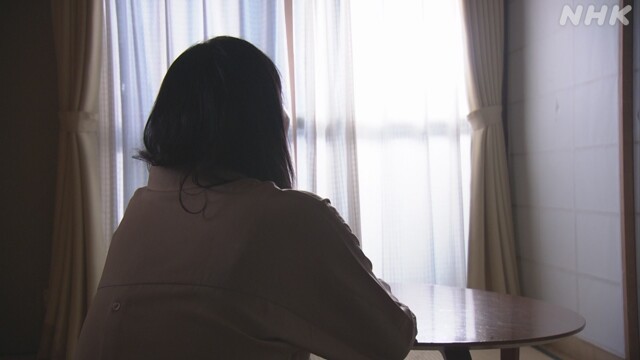"Postpartum depression" ratio Same level for nearly a year after childbirth Corona effect? October 22, 4:06
It has become clear that "postpartum depression," which is said to occur mainly in women immediately after childbirth and gradually decrease, may be prolonged.
A researcher's survey this month found that the proportion of women with postpartum depressive symptoms did not decline for nearly a year after giving birth and remained at the same level.
It is believed that this is due to the decrease in opportunities to go out due to the new coronavirus.
The survey was conducted this month by Associate Professor Midori Matsushima of the University of Tsukuba, who specializes in public policy, and midwives through a company that provides child-rearing-related apps, and asked about recent psychological states using a specialized questionnaire developed in the United Kingdom. , 2132 responses were obtained from women less than one year old.
It is said that about 10% of postpartum women develop "postpartum depression", but according to the preliminary figures of this survey, the percentage of people who may have "postpartum depression" has more than doubled to more than 20%. It is clear that it has become.
Furthermore, when we analyzed the proportion of women with depressive symptoms by how many months have passed since childbirth, it did not decrease significantly from 0 to 11 months after childbirth, and remained at about the same level. I understand.
According to a survey conducted by the National Center for Child Health and Development in the past, the proportion of women with the possibility of "postpartum depression" peaked at 2 weeks after giving birth and gradually decreased to about 6% to 7% in 3 months. It was supposed to be.
Due to the effects of the new coronavirus, the number of opportunities to go out, which should increase as children grow up, is decreasing, and financial instability due to a decline in income is thought to be the background.
Associate Professor Matsushima has a policy of continuing to conduct surveys and providing information to governments and medical institutions, and hopes that they will be used for future measures.
Expert "Possibility of prolonging child-rearing anxiety and stress in Corona"
Regarding the results of this survey, Dr. Yoshiyuki Tachibana of the National Center for Child Health and Development, who specializes in prenatal and postnatal mental health, said, "'Postpartum depression' has tended to decrease shortly after childbirth, but this result is constant. It's a shocking result of a high rate of persistence. Corona's effects can lead to prolonged anxiety, tiredness, and stress in child-rearing, which can cause problems for so many people. "
Dr. Tachibana wants the mother to consider consulting with a health center or seeing a medical institution if she feels it is difficult, and in many cases the mother does not speak herself, so family members and people close to her will help. I also call that it is important.

